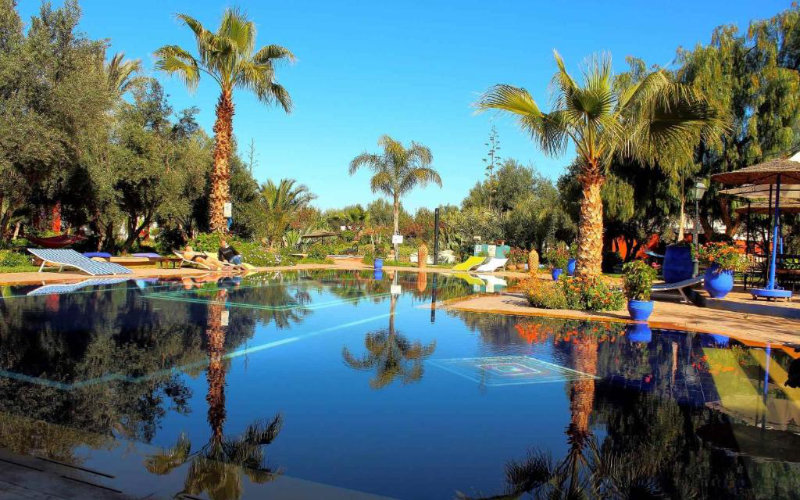Morocco’s Economic Boom: A Magnet for Global Investors Despite Challenges

Considered as a bridge between Europe and Africa, Morocco continues to attract investors due to its booming economy, driven by dynamic tourism, its low-cost labor force and its political stability.
The Harvard group, led by Professor Pedro Nueno, recently visited Marrakech, a popular tourist destination for retirees from Europe and the United States, to explore the economic reality of the kingdom. Imed Laiti, director of Expert Medical Opinion Morocco and a business consultant, who has accompanied several Catalan and Spanish companies in setting up in Morocco, notes that the kingdom "maintains a privileged relationship with the United States", highlighting the African Lion military exercises that the two countries co-organize each year, and the recognition by Donald Trump, during his first term, of Morocco’s sovereignty over Western Sahara.
Morocco attracts many foreign investors, particularly Israelis, Chinese, Japanese and Spanish. The latter invest particularly in sectors such as textiles, automotive, pharmaceuticals and engineering, he indicates in a report cited by La Vanguardia. Spanish hotel chains such as Barceló and NH, as well as Spanish waste management companies, are present in the kingdom. The Moroccan economy is characterized by stable prices, an annual inflation rate of 2% since 2009, a currency, the dirham, which has not fluctuated for 25 years, and free trade agreements with various regions and countries, explains Fatima Lahlou, from African Partners, an investment advisory firm in Morocco.
Fernando Casado, president of Asepeyo and the Formación y Futuro Foundation, who knows Morocco well, warns that in the kingdom, "the first few years are never good, except in the hotel sector. It is problematic in terms of regulations, health registration for example, authorizations take up to two years, but if you persist, it eventually offers good profitability". In the same vein, Antoni Garrell, president of HM Hospitals de Catalunya, adds that some data on Morocco call for caution, mentioning "its very high poverty rates, the low level of wages, especially the minimum wage, and emigration which remains high. What has changed in the country over the past 25 years?"
For Josep Maria Romances, CEO of Closa Capital, a family business consulting firm, "today’s Morocco could be compared to Spain in the 1960s, with spectacular growth and the creation of new markets. It is an excellent opportunity for companies." "Morocco, to the extent of its means, is developing for example a social housing policy offering apartments at prices of around 25,000 euros which, although high for the economic level of the population, are affordable and represent a way out. In Spain, on this point, the policy has failed," also declares Idefonso García Serena, publicist and CEO of GRM.
Francesc Fajula, general manager of Mobile World Capital Barcelona, is more optimistic. "Morocco has positively surprised me. Its economy has compensated for its low productivity through diversification. It is partly out of the major technological revolutions, it still uses 4G technology, while in Taiwan, 5.5 is already being used. But at the same time, it is capable of producing nearly 40% of its electricity from renewable energy and it is already a powerful hub for data processing centers offering services to Europe and Africa." In the pharmaceutical sector, Morocco is the second most powerful in Africa and supplies up to 80% of the country’s health needs, informs Jordi Cebrián, CEO of Areafar, a pharmaceutical laboratory.
Moroccan tourism is also appealing. Lidan Qi, CEO of Puente China, points out that "the tourism model visible in Marrakech combines very well high quality standards, particularly in its hotel offering, with the maintenance and respect of the country’s tradition, in the case of its crafts and popular atmospheres, which will be particularly competitive at a time when visitors want to escape the homogenization imposed by globalization". And Arantxa Calvera adds: "Tourists today are looking for the local, the authentic, the sustainable, health and well-being. Morocco offers a lot, Catalonia too, and we need to go further".
Related Articles
-

Morocco’s Ambitious 105km Guercif-Nador Motorway: Reshaping the Oriental Region’s Future
22 July 2025
-

Gold Price Drop Sparks Wedding Season Boom for Moroccan Jewelers
22 July 2025
-

Taxi Fare Scandal: Tangier Consumers Fight Back Against Illegal Price Hikes
22 July 2025
-

Royal Splendor in M’diq: Morocco’s Throne Feast Preparations Dazzle as King Mohammed VI Set to Preside
22 July 2025
-

Moroccan Diaspora Outraged: Soaring Travel Costs Threaten Summer Homecomings
22 July 2025